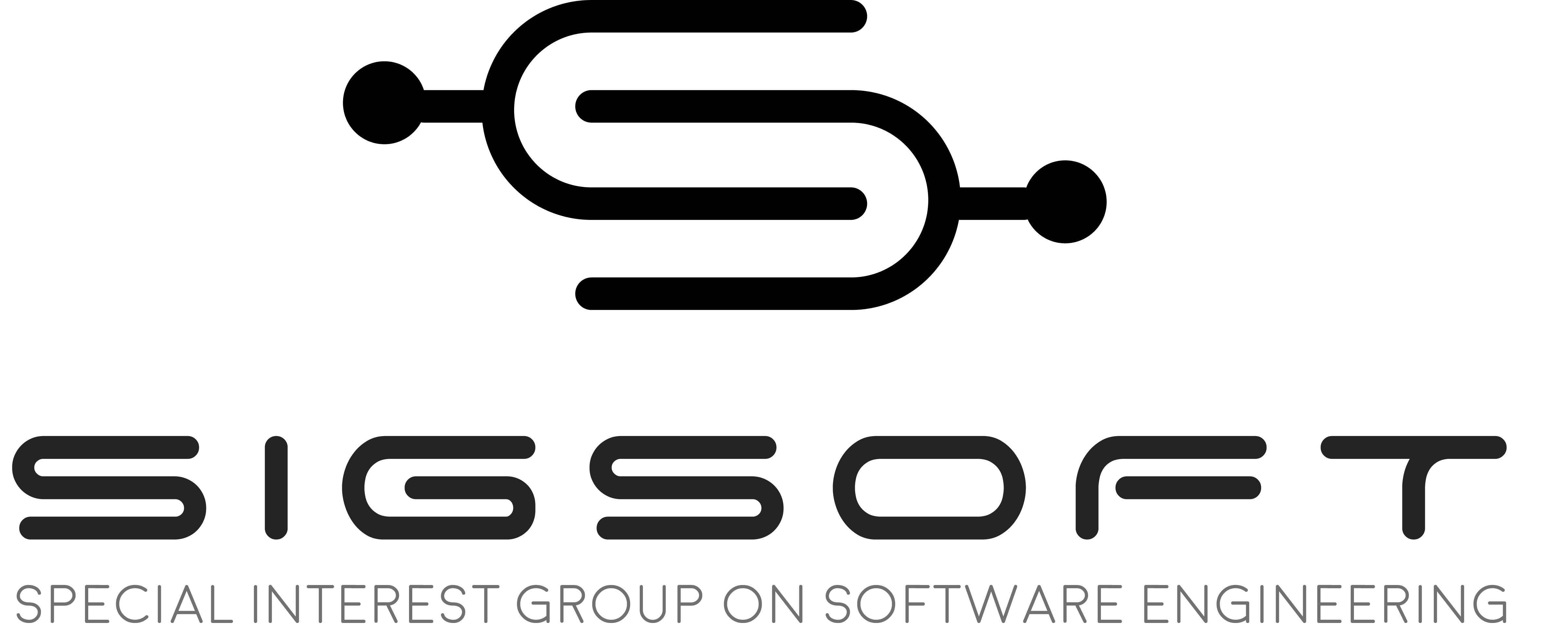Education is vital to the advancement of the research and practice of Software Engineering. Yet, the contributions of an educator often go unnoticed, except perhaps by those closest to the educator. The SIGSOFT Influential Educator Award is presented annually to an educator or educators who have made significant contributions to, and impact on, the field of software engineering with his or her accomplishments as a teacher, mentor, researcher (in education or learning), author, and/or policy maker.
Consult the main SIGSOFT Awards page for key dates, nomination instructions, and a link to the submission portal.
If you have questions about this award, please contact sigsoft-educator-award (at) acm (dot) org.
Winners
- 2026 Daniela Damian, University of Victoria, for pioneering and sustaining innovative approaches to experiential learning, collaborative and inclusive software engineering education across time zones, cultural boundaries, and diverse perspectives. Nominated by Neil Ernst, University of Victoria.
- 2025 Andreas Zeller, CISPA and Saarland University, for significant contributions and important innovations in automated software engineering education.
- 2024 Martin Robillard, McGill University, for significant contributions to hands-on software design education, including a textbook and a learner-focused software modeling tool.
- 2023 Tao Xie, Peking University, China, for significant contributions in mentoring of graduate students and junior researchers, broadening participation of underrepresented groups in software engineering/computing, and innovation in educational tooling
- 2022 Miryung Kim, University of California, Los Angeles, for outstanding achievements in undergraduate and graduate mentoring with an emphasis on research excellence in software engineering, diversity, and inclusion
- 2021 Katsuro Inoue, Osaka University, for his life-long foundational contributions to software engineering education and his success in connecting generations of educators and researchers from Japan with the international community
- 2020 Greg Wilson
- 2019 Ahmed E. Hassan
- 2018 Shriram Krishnamurthi, for his contributions to the advancement of the research and practice of software engineering
- 2017 Bertrand Meyer, for contributions to the advancement of the research and practice of software engineering
- 2016 Lori Pollock, for mentoring of undergraduate and graduate students, innovation in software engineering education, and educational research
- 2015 Barbara Ryder, for significant contributions in software engineering education, graduate student and faculty mentoring and efforts to improve the representation of women in the field
- 2014 Mary Lou Soffa, for a sustained record of mentoring of women at all ranks in the field of computing, especially software engineering
- 2013 Tony Wasserman, for early contributions to software engineering curriculum development and extensive academic and professional education in software engineering methods, tools, and management
- 2012 Mehdi Jazayeri, for significant and lasting contributions to software engineering and computer science education
- 2012 David Notkin, for tremendous impact in graduate-level education, in mentoring junior researchers, and in nurturing future researchers
- 2011 Ian Sommerville, for his contribution to the education of successive generations of Software Engineers internationally, through his writings, his teaching, and his student mentoring
- 2010 Leon J. Osterweil, for pioneering software engineering as an academic discipline, contributions to software engineering scholarship and excellence through graduate education, and mentoring of new software engineering faculty
- 2009 Laurie Williams, for significant and lasting contributions to software engineering and computer science education
- 2009 Nico Habermann (posthumously), for significant and lasting contributions to the field of software engineering as a teacher and mentor
Committee
2026
- Lionel Briand, University of Ottawa, Canada and LERO, University of Limerick, Ireland (chair)
- Sepideh Ghanavati, University of Maine, USA
- Jun Sun, SMU, Singapore
- Foutse Khomh, Polytechnique Montréal, Canada
- Qinghua Lu, CSIRO, Australia
- Domenico Bianculli, University of Luxembourg, Luxembourg
- Dan Hao, Peking University, China
- Marsha Chechik, University of Toronto, Canada (SIGSOFT chair, non-voting)
- Claire Le Goues, Carnegie Mellon University, USA (SIGSOFT award chair, non-voting)
2025
- Lionel Briand, University of Ottawa, Canada and LERO, University of Limerick, Ireland (chair)
- Benoit Baudry, University of Montreal, Canada
- Domenico Bianculli, University of Luxembourg, Luxembourg
- Jialun Cao, Hong Kong University of Science and Technology, China
- Paola Spoletini, Kennesaw University, USA
- Jun Sun, SMU, Singapore
- Lin Tan, Purdue University, USA
- Yang Liu, NTU, Singapore
- Andrea Zisman, Open University, UK
- Marsha Chechik, University of Toronto, Canada (SIGSOFT chair, non-voting)
- Claire Le Goues, Carnegie Mellon University, USA (SIGSOFT award chair, non-voting)
2024
- Walid Maalej, University of Hamburg, Germany (chair)
- Filippo Lanubile, University of Bari, Italy (deputy chair)
- Lionel Briand, University of Ottawa, Canada and University of Luxembourg, Luxembourg
- Katsuro Inoue, Nanzan University, Japan
- Barbara Paech, Heidelberg University, Germany
- David Shepherd, Louisiana State University, USA
- Paola Spoletini, Kennesaw State University, USA
- Thomas Zimmermann, Microsoft Research, United States (SIGSOFT chair, non-voting)
- David Lo, Singapore Management University, Singapore (SIGSOFT award chair, non-voting)
2023
- Andrea Zisman, Open University, United Kingdom (chair)
- Walid Maalej, University of Hamburg, Germany (deputy chair)
- Paris Avgeriou, University of Groningen, Netherlands
- Luciano Baresi, Politecnico di Milano, Italy
- Daniela Damian, University of Victoria, Canada
- Prem Devambu, UC Davis, United States
- Zhenjiang Hu, Peking University, China
- Robyn Lutz, Iowa State University, United States
- Thomas Zimmermann, Microsoft Research, United States (SIGSOFT chair, non-voting)
- David Lo, Singapore Management University, Singapore (SIGSOFT award chair, non-voting)
2022
- Marsha Chechik, University of Toronto, Canada (chair)
- Daniela Damian, University of Victoria, Canada
- Prem Devambu, UC Davis, United States
- Mark Harman, Facebook and UCL, United Kingdom
- Jon Whittle, CSIRO’s Data61, Australia
- Tao Xie, Peking University, China
- Andrea Zisman, Open University, United Kingdom
- Thomas Zimmermann, Microsoft Research, United States (SIGSOFT chair, non-voting)
- David Lo, Singapore Management University, Singapore (SIGSOFT award chair, non-voting)
2021
- Ahmed E. Hassan (chair)
- Hironori Washizaki
- Patanamon Thongtanunam
- David Lo
- Michael Godfrey
- Max Di Penta
